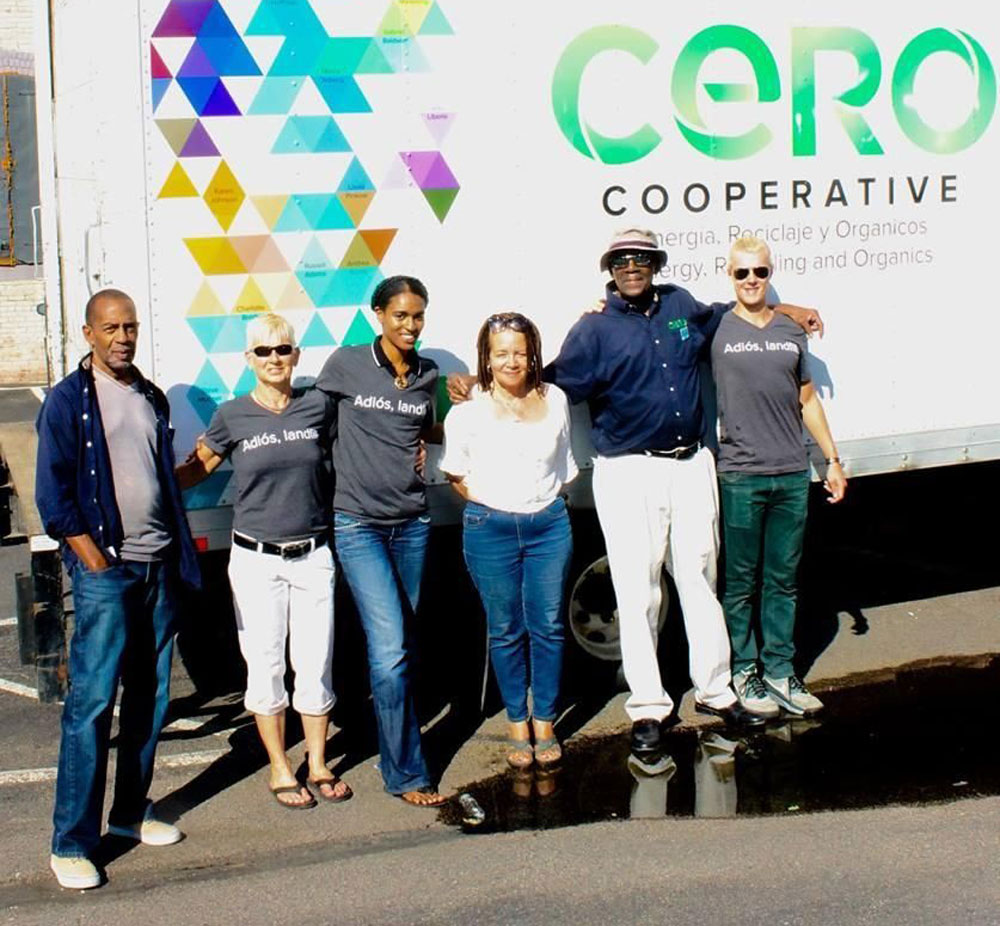
March 12, 2020; Politico
Writing for Politico, Erick Trickey profiles growing city support for worker co-ops in Boston, where the city’s worker cooperative initiative has lent money to six worker-owned companies. While the headline, “How Boston Is Becoming the City Where Workers Rule,” is overblown—loans to six businesses employing maybe 100 workers in a city of just under 700,000 people is hardly a revolution—it is clear that worker ownership is becoming a growing strategy for addressing economic inequality both in Boston and elsewhere.
Earlier this year, for example, NPQ profiled the impact of five years of city support of worker co-op development in New York City. Supported by the nonprofit Democracy at Work Institute, in partnership with the National League of Cities, many other cities are also beginning to support worker co-ops. Atlanta, for example, has put up $400,000 in federal block grants to fund potential conversions of existing businesses to co-ops. Meanwhile, Miami has awarded $150,000 in grants to give technical assistance to businesses owned by people of color who are considering conversions to worker ownership. Additional cities exploring worker ownership include Durham, North Carolina; Louisville, Kentucky; Richmond, Virginia; Philadelphia; San Francisco; and Washington, DC.
Boston’s effort to support worker co-ops through city lending was launched back in 2017. Among the businesses the city has supported is Democracy Brewing. As Trickey explains, the brewpub, which opened on July 4th, 2018, used a city loan of $150,000 as part of the initial capital to get started. “It’s a huge chunk of what made it possible for us to open our doors,” says co-op cofounder and CEO James Rasza. City support helped his business ultimately raise $1.8 million in startup capital. The co-op, notes Trickey, gives workers a stake in the company and a say in how their workplace is run. Brewpub workers earn a minimum of $15 per hour.
To date, Trickey adds, “14 of Democracy Brewing’s 32 employees are worker-owners, with more preparing to join.” Under the co-op’s bylaws, to become a worker-owner you must have a year’s experience on the job, complete training in business finances, and purchase a share for $1,000. Payment can occur gradually through a payroll deduction. Worker-owners are eligible to join the board of directors to take part in major decisions and can also attend smaller-scale problem-solving meetings that take place biweekly.
Sign up for our free newsletters
Subscribe to NPQ's newsletters to have our top stories delivered directly to your inbox.
By signing up, you agree to our privacy policy and terms of use, and to receive messages from NPQ and our partners.
Emmanuel Gonzalez, 28, who has been a server at the brewery since September, tells Trickey that he looks forward to becoming a worker-owner this fall. “No one’s ever owned anything in my family. To be able to say I own something means a lot to me.”
Another co-op profiled by Trickey is CERO Cooperative, whose planners started to organize the co-op five years before the city’s program began in 2012. First an organizing group, the co-op opened for business in October 2014. The name, notes Trickey, “means ‘zero’ in Spanish, as in zero waste, and it’s also an [English] acronym for ‘cooperative energy, recycling and organics’.”
The business saw an opening provided by a then-forthcoming Massachusetts environmental regulation that would require all companies generating more than a ton of food waste per week to compost it. The business has grown from five clients in 2014 and revenues under $50,000 up to $700,000 in revenues this year.
In this case, the city role was to support the expansion of the existing business with a $100,000 loan. As with Democracy Brewing, employees are initially hired into the business and later given a chance to become owners. As Trickey details, CERO “invites all its workers to start the process of buying into the company as a worker-owner after six months working there. Potential new owners take lessons in cooperative finance, management, leadership and governance, in either English or Spanish. Neither immigration status, a criminal record, nor lack of English skills bar anyone from joining, the owners say.”
Buying an ownership share at CERO is expensive— $4,000. But ownership is made accessible by allowing employees to buy their share a bit at a time through a payment plan that involves a $25 payroll deduction per biweekly paycheck. At that pace, it takes six years for a worker to fully vest, but workers can vote as owners as long as they are on path to ownership. In terms of wages, the business pays its drivers a minimum of $20 an hour, or $25 if they have a commercial trucking license. The business currently has five co-owners, four of whom are people of color.
Nationally, the US Federation of Worker Cooperatives reports there are 465 verified worker co-ops nationwide, employing about 6,400 workers. Esteban Kelly, the federation’s director, estimates that new worker co-ops are currently forming in the US at a pace of roughly 100 a year. Greater Boston, according to the federation’s latest survey, has the third highest concentration nationally, with 19 worker co-ops.—Steve Dubb












